Extraordinary Form of Marriage
Marriage is a primordial sacrament in the Catholic Church. God has instituted at the creation of man and woman. "…Yahweh God fashioned the rib he had taken from the man into a woman and brought her to the man, and the man said: this one, at last, is bone of my bones and flesh of my flesh! She is to be called a woman because she was taken from a man. This is why a man leaves his father and mother and becomes attached to his wife, and they become one flesh" (Gen. 2:22-24). For this reason, and Jesus insisted on this (cf. Mt. 19:5), the Catholic Church gives more importance to the sacrament of Marriage. The validity and legitimacy are important for Marriage's authorization as a sacrament. The form by which a marriage is celebrated in the Church is very much important for Marriage's legitimacy. Here, I am trying to study the Code of Canon 1116, which speaks about the Extraordinary Form of Marriage. Canon Law gives an exception for Marriage's celebration when the valid minister lacks.
The Canonical Form of Marriage
The
Marriage is validly celebrated in the parish church of either party in normal
circumstances, and an authorized minister should be present to celebrate the
Marriage. The parish priest has the primary authority for the blessing of the
Marriage (cf. 530, 4̊). However, the parties can call another priest or deacon,
and it is allowed by delegation (cf. cc. 1114, 1115). John P. Beal, "The
Sacraments" in New Commentary on the Code of Canon Law, ed. John P. Beal,
James A. Coriden and Thomas J. Green (Banglore: Theological Publications in
India, 2013) 1132-1133
There should be two witnesses to witness the
Marriage for the valid form of Marriage. Assist in Marriage is not the power of
Order or the governance; it is the power of the parish priest's office, or
otherwise, he is delegated to another minister. The Latin Church considers the
two parties who consent as the Marriage ministers. Still, in the
The ministers are priests, deacons, or laypersons who have the
faculty to assist the Marriage either by the faculty or by delegation. John M.
Huels, The Pastoral Companion: A Canon Law Handbook for Catholic Ministry
(Banglore: Theological Publications in India, 2016) 279.
The Extraordinary Canonical Form
There
are several situations in the Church where Canonical form is not possible due
to the lack of valid ministers. In such situations, there is a provision in the
canon law (c.1116) by which lay people can assist the Marriage. This form is
known as the extraordinary form of Marriage. However, certain norms should be
observed in such situations: John M. Huels, The Pastoral Companion: A Canon Law
Handbook for Catholic Ministry, 294.
The Absence of an Authorized Minister
There
should be a grave inconvenience to get an authorized minister to celebrate
Marriage's extraordinary canonical form legitimately. There are two ways by
which the unavailability of a valid celebrant lacks: physical and moral factor.
The physical factor occurs due to war, persecution, or natural calamities. The
impossibility that makes Marriage legitimate can be relative. John P. Beal,
"The Sacraments" in New Commentary on the Code of Canon Law, 1134
E.g., In a village of Shillong archdiocese
where road facility is good, and an authorized minister can reach easily will
be a minor inconvenience; whereas in an interior village of Arunachal Pradesh
where there is no good road and priest cannot reach during the rainy season
will be a grave inconvenience for the unavailability of a valid minister. In
certain cases where the civil law forbids the valid minister for the
celebration of Marriage can be considered the minister's unavailability. John
M. Huels, The Pastoral Companion: A Canon Law Handbook for Catholic Ministry,
295.
Circumstances Warranting the Use of the Extraordinary Form
There
are two situations Canon 1116 envisage the unavailability of an authorized
minister approves recourse to the extraordinary form: danger of death (c.1116
§1, 1̊), prudently foreseen that the situation will continue for a month
(c., 1116 §1, 2̊). John P. Beal, "The Sacraments" in New Commentary on
the Code of Canon Law, 1134.
The danger of death of either party is
probably due to internal or external causes can be a valid reason for an
extraordinary canonical form. Death does not need to be near and sure. In such
situations, the parties should make sure that a valid minister's assistance is
certainly unavailable. The situations such as war, persecutions, natural
calamities, and the presence of a valid minister so the parties can go for the
extraordinary form of Marriage. John M. Huels, The Pastoral Companion: A Canon
Law Handbook for Catholic Ministry, 295
The parties should foresee that the minister's
unavailability will continue for a month. In this case, moral certainty requires
deciding the absence of a valid minister consisting of one month. John M.
Huels, The Pastoral Companion: A Canon Law Handbook for Catholic Ministry, 295
If their calculations went wrong, the Marriage
they entered through the extraordinary canonical form is valid. However, the
unavailability is caused due to the prohibition made by the diocesan bishop or
parish priest because some immoral behavior or other practices against the church cannot be counted as unavailability. John P. Beal, "The Sacraments"
in New Commentary on the Code of Canon Law, 1134.
Performance of the Extraordinary Form
When
an authorized minister's unavailability and impossibility are proven, the
parties can enter into Marriage's valid celebration before two witnesses. The extraordinary
canonical form will never give dispensation from any impediments to Marriage's
valid entry; both the parties should understand the value of Marriage in the
correct sense which Church teaches. John
P. Beal, "The Sacraments" in New Commentary on the Code of Canon Law,
1134
If there is any priests or deacon available,
they can invite for the blessing of the Marriage, but the absence of such
ministers never make the marriage invalid in the case of extraordinary
canonical form. Thomas Pazhayampallil, Pastoral Guide, vol II, Sacraments and
Bioethics (Banglore: Kristu Jyothi Publications, 2004)
The available priest or deacon can give
dispensation to the certain impediments which are according to the canons 1079
and in 1080. Marriage is celebrated according to the extraordinary
canonical form the minister or the witness should inform the parish priest or
local ordinary as soon as possible according to the provision of c. 1121§2.
John M. Huels, The Pastoral Companion: A Canon Law Handbook for Catholic
Ministry, 306.
Conclusion
Marriage
in the Catholic Church has greater importance. The celebration of the
sacraments and their validity is the main concern in the Church. The form of
Marriage, the ministers, and the Marriage's preparation have great value
in the Church. As we have seen above, there are two marriage
forms in the Church. The canonical form which we are using in normal
circumstances. The other is the extraordinary canonical form of Marriage. As
the name shows, this Marriage is celebrated only in conditions where the normal
form of marriage is impossible. Extraordinary Form of Marriage can conduct after
proving a valid minister's unavailability either by faculty or by
delegation. This Marriage is valid in the Church if it is conducted in front of
two witnesses, and all the other conditions have been followed.
Hope you loved this article on Extraordinary Form of Marriage | Code of Canon 1116
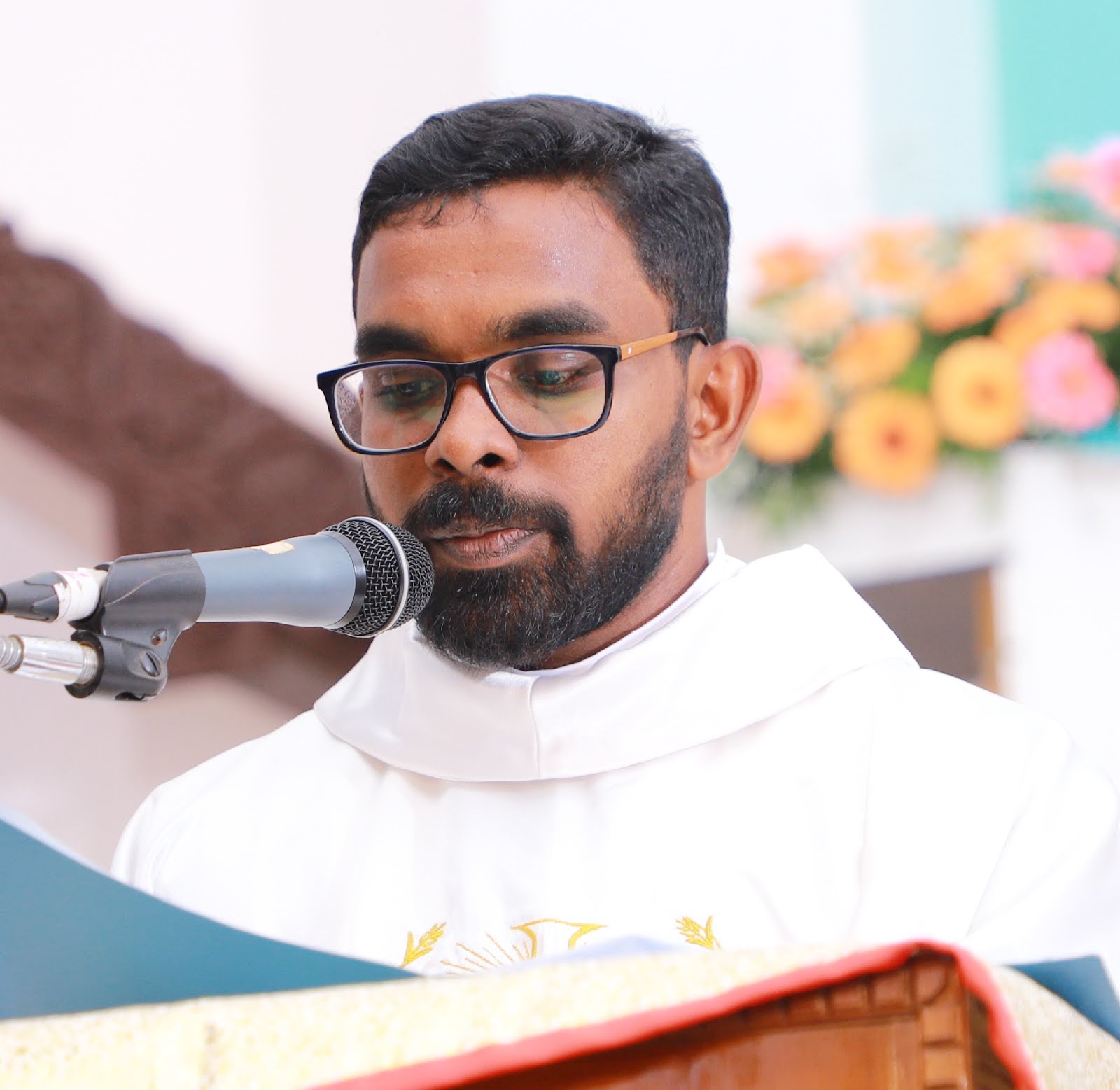
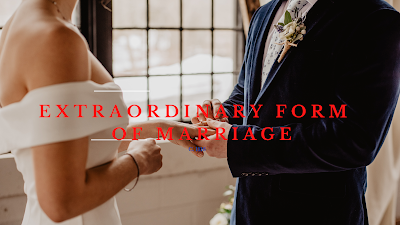


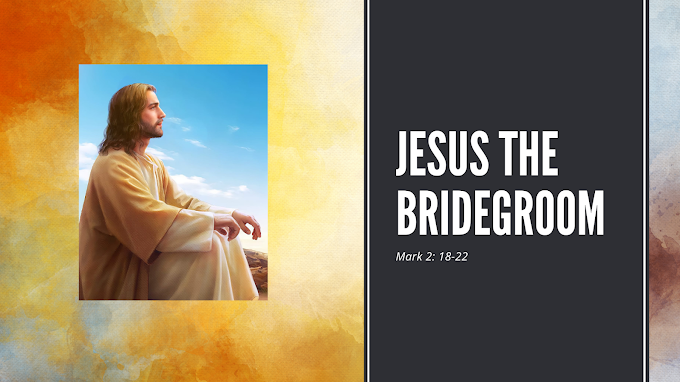
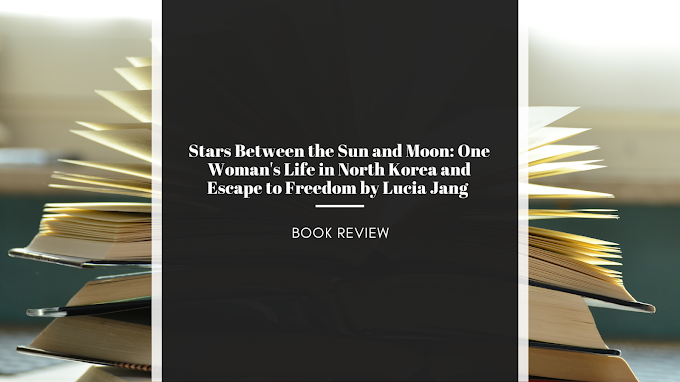
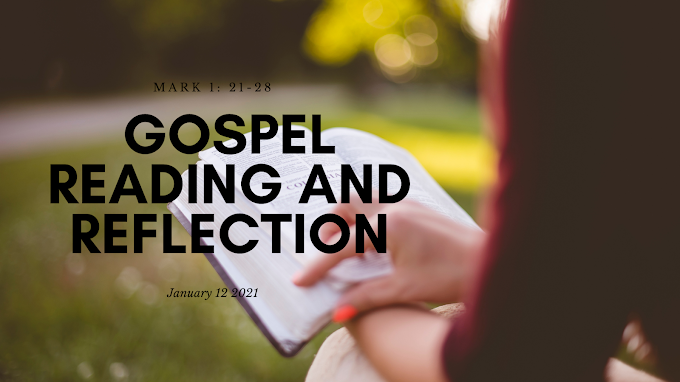

0 Comments
Do not enter any spam link in the comment box.